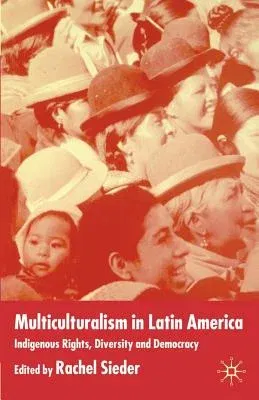Multiculturalism in Latin America: Indigenous Rights, Diversity and Democracy (2002)Paperback - 2002, 24 June 2002

Qty
1
Turbo
Ships in 2 - 3 days
In Stock
Free Delivery
Cash on Delivery
15 Days
Free Returns
Secure Checkout
Part of Series
Institute of Latin American Studies
Part of Series
Institute of Latin American Studies Series
Print Length
280 pages
Language
English
Publisher
Palgrave MacMillan
Date Published
24 Jun 2002
ISBN-10
0333998715
ISBN-13
9780333998717
Description
Product Details
Book Edition:
2002
Book Format:
Paperback
Country of Origin:
US
Date Published:
24 June 2002
Dimensions:
21.34 x
13.97 x
2.29 cm
ISBN-10:
0333998715
ISBN-13:
9780333998717
Language:
English
Location:
London
Pages:
280
Publisher:
Weight:
362.87 gm

